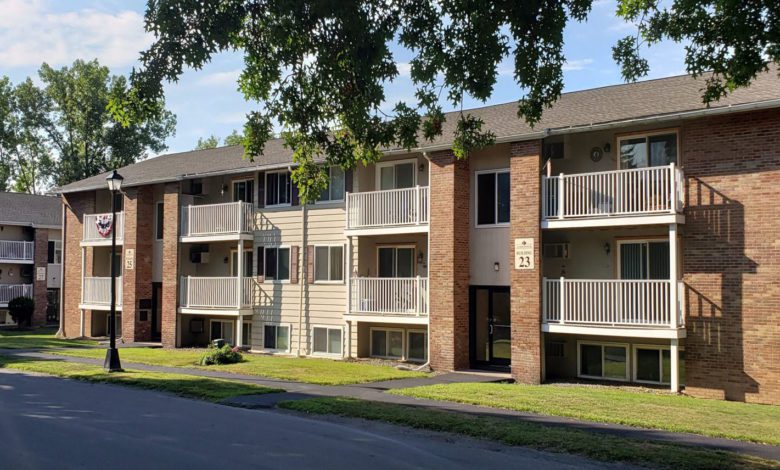
Hoosiers Aren’t Making Enough to Pay Rent
by Marissa Meador, Indiana Capital Chronicle
Full-time workers in Indiana need to earn at least $19 an hour, or $39,526 a year, in order to afford rent on a two-bedroom apartment, according to a report released Wednesday by Prosperity Indiana and the National Low Income Housing Coalition.
However, not everyone is meeting that mark, with Indiana’s average renter wage at only $17.86 per hour.
“Indiana has twin crises of a shortage of affordable homes and too few good-paying jobs to afford them. This is a symptom of a lack of economic opportunity which prevents too many Hoosiers from achieving their true potential and leaves Indiana behind the curve of the Midwest,” said Andrew Bradley, policy director for Prosperity Indiana and board member of NLIHC.
Wages Lag Behind Rent
In Indiana, almost a third of the state are renters.
Being able to afford rent, according to the report, means spending no more than 30% of your income on housing. With fair market rent for a two-bedroom home at $988 per month, wages are just not keeping up.
In 2023, the $19 wage needed to afford rent rose 12% from $16.97 in 2022, but wages themselves only increased 7.5% in Indiana. Compared to other states in the Midwest region, Indiana wages are consistently lower, lagging by 91 cents in 2023.
The report also notes that those earning Indiana’s minimum wage — $7.25 — must now work 105 hours a week to afford a two-bedroom home at fair market rent.
Individual areas in the state also have higher rent costs; for example, renters in Bloomington need to make $21.62 an hour — the most expensive in the state.
Of the 20 top occupations in Indiana, 10 occupations pay less than $19 an hour. That accounts for 625,000 people — more than a fifth of the state’s workforce, according to the report.
The consequences of unaffordable rent
When people have to pay more than 30% of their income on housing, it can make eviction more likely.
According to Princeton’s Eviction Lab, 73,044 evictions have been filed in Indiana in the past year. Almost 40% of these evictions have been filed in Marion County, where almost half of residents facing eviction are Black or Latino.
Having a prior eviction not only makes it harder to apply for other housing, but it also cannot be expunged from your record. Tenants could not even remove unsuccessful eviction filings from their record until the General Assembly passed a bill allowing it in 2022.
Beyond a mark on their record, struggling to pay for housing can reach all areas of a person’s life.
Laurin Embry, director of the Indiana Tenant Association and the Indianapolis Tenants Rights Union, wrote in the report that families have been separated through the Department of Child Services due to some parents’ inability to afford housing. Despite paying multiple application fees, one family was repeatedly denied housing with no explanation, she said.
“Indiana’s affordable housing crisis, lack of tenant protections, and low wages make securing affordable housing a nearly impossible task,” Embry said. “Those fortunate enough to afford housing now may later find themselves unable to maintain their housing if their rent is increased when it’s time to renew their lease.”
The report comes as pandemic programs like additional Supplemental Nutrition Assistance Program benefits have expired even as food prices rise. From 2021 to 2022, food costs increased 11% — a major change from the 2% average annual increase. It ends fine to me. Not all stories need a zinger.





